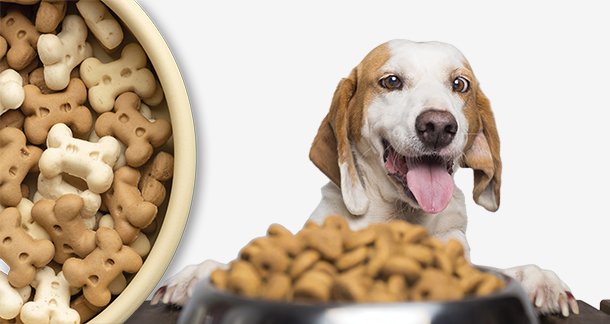Dr. Jiyaul Hoque, Senior Veterinarian, MARS Petcare
In the world of pet care, the importance of proper nutrition cannot be overstated. As pet parents, we all want our furry companions to live long, healthy lives. While general guidelines for pet nutrition are widely available, there’s a growing awareness of the need for breed-specific nutrition. Just as humans have unique dietary needs based on their physiology, so do our pets. Understanding these needs and providing breed-specific nutrition is crucial to ensuring that our pets thrive at every stage of their lives.

Importance of breed-specific diet
Every dog breed is unique, not just in appearance but also in terms of genetic predispositions, energy levels, and specific health concerns. These differences mean that a one-size-fits-all approach to pet nutrition may not be adequate. Breed-specific nutrition takes into account the distinct needs of each breed, addressing potential health issues, dietary requirements, and energy demands.
For instance, large breeds like German Shepherds and Golden Retrievers are prone to joint issues, such as hip dysplasia. A diet rich in glucosamine and chondroitin can support joint health and mobility. Conversely, smaller breeds like Chihuahuas and Dachshunds may have different nutritional needs, including calorie-dense diets to support their higher metabolism.
Understanding the nutritional needs of different breeds
Large breeds:
Large breed dogs, such as Labradors, Great Danes, and Rottweilers, have unique nutritional needs due to their size and weight. These breeds are more susceptible to joint problems and may benefit from diets that include nutrients like omega-3 fatty acids, glucosamine, and chondroitin. These components help reduce inflammation and support cartilage health, essential for maintaining mobility and reducing the risk of arthritis as they age.
Additionally, large-breed puppies require a diet supporting steady growth without encouraging rapid weight gain, which can strain developing joints. A balanced diet with controlled calcium and phosphorus levels is crucial during growth to prevent developmental issues.

Small breeds:
Small breeds, such as Pomeranians, Yorkshire Terriers, and Miniature Schnauzers, typically have higher metabolic rates and energy levels compared to their larger counterparts. Their small stomachs require nutrient-dense food that provides all the essential vitamins, minerals, and energy they need in smaller quantities.
Small breeds also have unique dental health needs. Due to their smaller mouths, they are more prone to dental issues like plaque buildup and tooth decay. Feeding them kibble designed for small breeds can help reduce tartar formation and promote better oral health.
Breeds prone to obesity:
Certain breeds, like Bulldogs, Beagles, and Pugs, are more prone to obesity. For these breeds, a diet lower in calories but high in fiber can help them feel full while managing their weight effectively. These diets should still provide all the essential nutrients but in a way that helps maintain a healthy weight, reducing the risk of obesity-related health problems such as diabetes, heart disease, and joint stress.
Monitoring portion sizes and providing regular exercise are also critical components of managing the weight of these breeds. Breed-specific formulas focusing on weight management can be particularly beneficial in these cases.
Breeds with sensitive stomachs:
Some breeds, like Boxers and Irish Setters, are known to have sensitive digestive systems. These dogs may benefit from a diet that is easy to digest and includes high-quality, easily digestible proteins, prebiotics and probiotics to support gut health. Ingredients like rice, oatmeal, and pumpkin can be gentle on the stomach and help prevent digestive upset.
Additionally, it’s important to avoid common allergens or ingredients that these breeds may be sensitive to. A breed-specific diet that addresses these concerns can help reduce the risk of food-related issues and promote overall digestive health.
Breeds with unique coat and skin needs:
Siberian Huskies, Poodles, and Shih Tzus have specific coat and skin care needs. A diet rich in omega-3 and omega-6 fatty acids and vitamins like A and E can help maintain a healthy, shiny coat and prevent common issues like dryness, itching, and excessive shedding.
For breeds prone to skin conditions or allergies, selecting a diet that avoids common allergens and includes skin-soothing ingredients can make a significant difference. Breed-specific diets often include tailored nutrient profiles to support the health of the skin and coat, ensuring that these pets look and feel their best.
Mars Petcare has been at the forefront of research and development in pet nutrition for decades. By understanding the unique needs of different dog breeds, the pet food brand has developed a range of breed-specific formulas that cater to the individual requirements of each breed. These formulas are designed not only to meet the nutritional needs of the breed but also to enhance their overall well-being.
Breed-specific nutrition is more than just a trend; it is a necessary approach to ensuring the well-being of our pets. By recognizing and addressing the unique needs of each breed, we can provide our furry companions with the best possible care. As we continue to learn more about pet health, breed-specific nutrition will always play an increasingly important role in helping our pets live long, healthy, and fulfilling lives.

